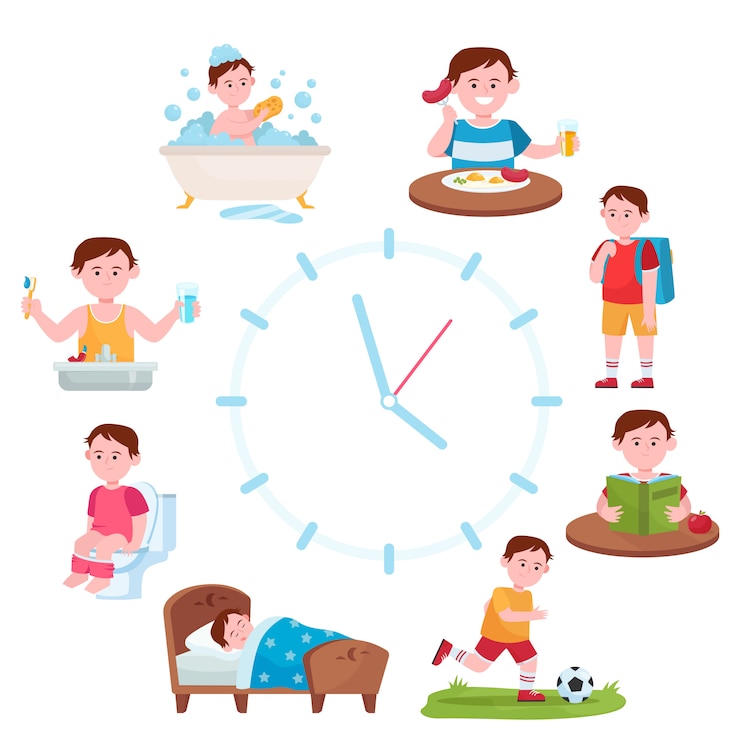
Inside: Positive Parenting focuses on setting clear, respectful boundaries, offering an effective alternative when traditional parenting methods fall short in fostering long-term cooperation and respect.
Table of Contents
Finding yourself slumped over the kitchen counter at 10:30 pm, munching on chocolate-covered almonds while searching online for “How to get kids to listen” probably wasn’t what you imagined parenting would be like. We often think that raising a child should just come naturally.
Just as naturally as a child enters the world, we expect parents to instinctively know how to nurture and guide them in an ever-complex world—and make it look picture-perfect too. But that’s not always reality.
For many parents, unexpected challenges prompt the search for new approaches to discipline and guidance, leading them to discover positive parenting.
Consider this your comprehensive guide to positive parenting.
Would you feel confident taking on the job of an electrician, lawyer, or chef without any training? Imagine showing up on your first day, expected to create a souffle or wire a circuit board—it’s not easy!
Yet, when it comes to raising children—arguably one of the toughest jobs—there’s often no formal training or education involved. When we’re unsure, we default to what feels natural. Unfortunately, what we think we know about parenting might not meet a child’s emotional and developmental needs and could even be harmful, including physical punishment or using fear and shame.
Here’s where positive parenting—or positive discipline—comes in. Rooted in an authoritative approach, it emphasizes setting firm but respectful boundaries, helping to raise emotionally healthy children and improve their behavior.
Discover the five main positive parenting concepts, and learn from top developmental psychology and behavioral science experts how these concepts benefit your child’s emotional well-being in >> 5 Positive Parenting Techniques that Raise Emotionally Healthy Kids
Both in the short and long term, this often-overlooked concept is the cornerstone of positive discipline. Before worrying about what to say or do when your child doesn’t listen or attempts to ride the dog like a horse, ensure your approach to discipline is rooted in this key idea >> This Positive Parenting Tip is GOLD for Promoting Positive Behavior
Positive parenting not only benefits your child’s social, emotional, and mental health but can also transform your family’s dynamic. Learn more about its impact in >> This is Why Positive Parenting Skills WILL Change Your Family Forever
One of the most challenging aspects of becoming a positive parent is adopting new tools and strategies for dealing with difficult behaviors. Positive discipline encourages responding mindfully to a child rather than reacting emotionally (like resorting to threats or yelling).
We’ve all been there, but learning a different approach can greatly benefit your child’s future mental health and well-being. Understand the potential harm and how to avoid it in > How to Discipline a Child Without Criticism and Shame
Before diving into disciplining your child, read this essential article that will transform your perspective FOREVER: The One Thing You Must Know About Disciplining a Child
Handling frustrating behaviors like whining, tantrums, and sibling rivalry positively is challenging. Here are 12 tough child behaviors and positive discipline solutions >> Positive Discipline Made Practical: 12 Behaviors and Solutions
Parents often remind me in therapy sessions how they sometimes need to leave the house quickly. So how can we encourage children to listen without using fear or threats, even if these methods seem effective short-term? Learn how in >> How to Get Your Child to Listen Without Yelling
Dealing with your child’s verbal and physical aggression is one of the toughest skills to master in positive parenting, but it’s possible. Get the step-by-step plan here >> How to Be a Positive Parent with an Aggressive Child
> How to Be a Positive Parent During Holiday Stress
Let’s be honest, if you’re feeling overwhelmed or frustrated by positive parenting, you’re not alone. Changing established routines isn’t easy, and there are numerous obstacles when embracing positive parenting.
Explore 8 common reasons why Positive Parenting might not be working for you and how to address them >> Positive Parenting Isn’t Working: 8 Eye-Opening Reasons Why
I strongly believe in the power of positive, respectful discipline to transform relationships and family dynamics, both from professional experiences in therapy and within my own family. It can have an enormous positive impact on your child’s future emotional well-being.
Learn tips from a child therapist on fostering cooperation, trust, and strong family bonds without harming your child’s emotional health!
Check out what you’ll find after downloading:
**How to set effective limits without harming your child’s self-esteem
**Why understanding this one thing about your child is crucial in parenting
**A simple daily practice that can transform social and emotional growth
**The big mistake parents make in encouraging cooperation and listening
Equip your child with essential life skills.
Join 30,000 other intentional parents who get the Parents with Confidence weekly email. Sign up for a FREE 5-day email parenting course where you’ll learn:
* The best ways to protect your child’s self-esteem
* How to gain your child’s cooperation effectively
* The most valuable skill a child can have for the future
* How to discipline without causing emotional harm
JOIN + GET MY ECOURSE!
We promise not to send you spam. Unsubscribe anytime.
Built with Kit



